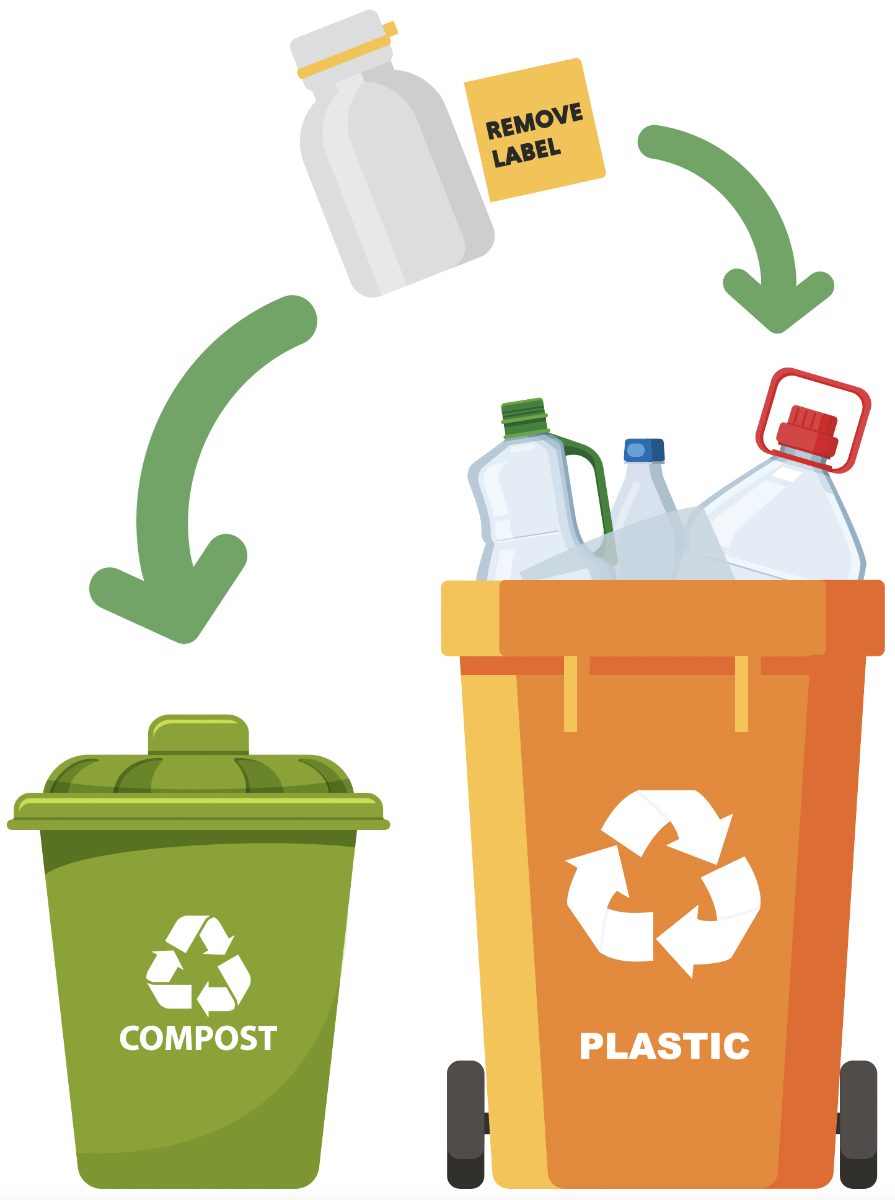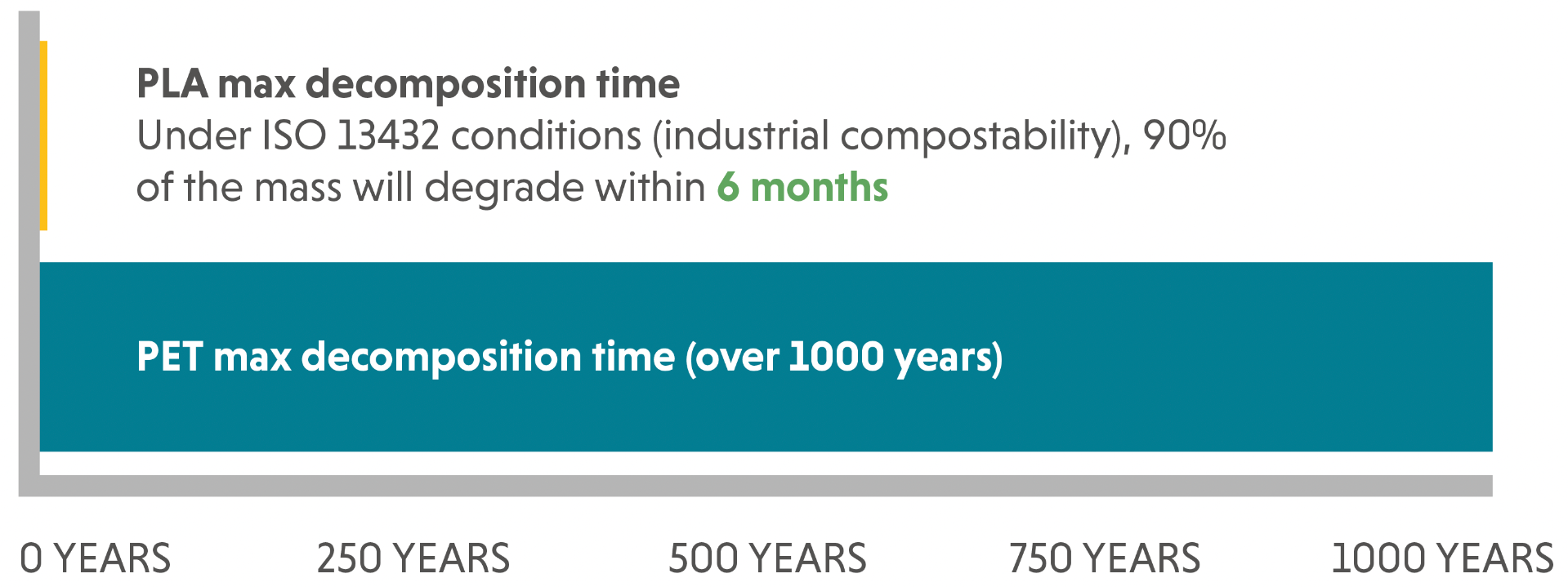Nutrigold Biopots
A BIO-Compostable packaging is defined as the one that in presence of living organisms within environmental conditions, will completely transform into natural elements (i.e. Water, Compost, CO2). The 100% BIO-Compostable material has become a truly environmental-friendly alternative for nutraceutical & pharmaceutical packaging. Base material is a vegetal-origin polymer obtained from Starch and Sugar Cane fermentation (sugar, potatoes, wheat).
Are all Bioplastics BIO-Compostable too?
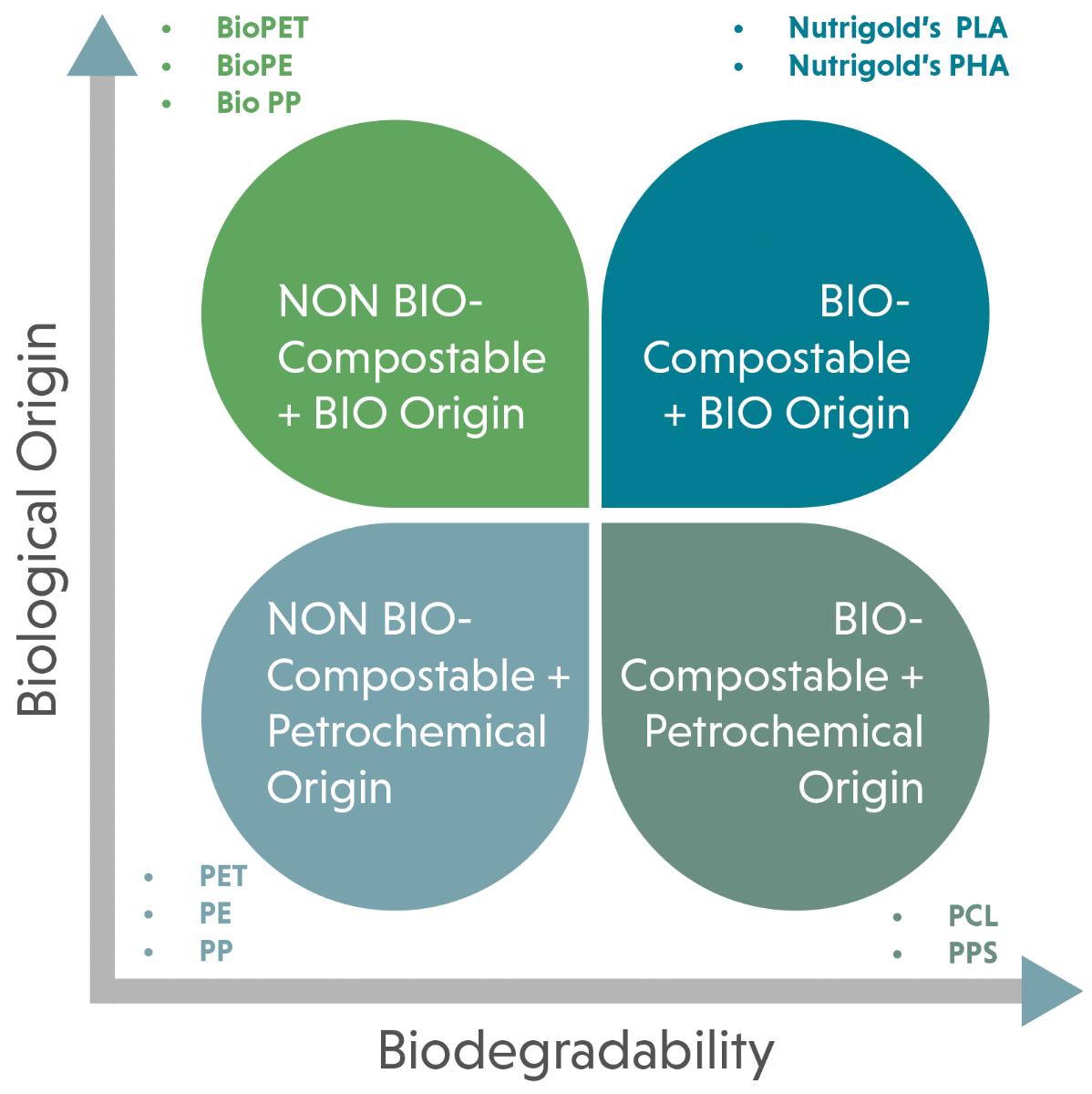
PET - Polyethylene terephthalate, is the most common thermoplastic polymer resin of the polyester family and is used in fibres for clothing, containers for liquids and foods, and thermoforming for manufacturing, and in combination with glass fibre for engineering resins.
PE - Polyethylene or polythene is the most common plastic in use today. It is a polymer, primarily used for packaging. As of 2017, over 100 million tonnes of polyethylene resins are being produced annually, accounting for 34% of the total plastics market.
PP - Polypropylene, also known as polypropene, is a thermoplastic polymer used in a wide variety of applications. It is produced via chain-growth polymerization from the monomer propylene. Polypropylene belongs to the group of polyolefins and is partially crystalline and non-polar.
BiPET – BioPE - Bio PP Plastics are generally comprised of carbon, hydrogen, oxygen, etc. If the source of carbon is completely/partly from petrochemicals, then the plastic is said to be non-biodegradable. There are 100% biobased plastics like PLA, PHA as well as partially biobased plastics. While 100% bio-based plastics are mainly used to substitute the plastics that might end up as litter (usually shopping bags, food packaging, disposables), partially bio-based plastics such as polythene manufactured from sugar cane, can provide a near-perfect substitute for oil-based equivalents in products where durability and robustness is vital.
PLA - Polylactic acid, is a thermoplastic monomer derived from renewable, organic sources such as sugar cane. Using biomass resources makes PLA production different from most plastics, which are produced using fossil fuels through the distillation and polymerization of petroleum.
PHA - Polyhydroxyalkanoates are degradable, biocompatible, thermoplastic polyesters derived from microorganisms, used as a reserve of carbon and energy.
PCL - Polycaprolactone is a biodegradable polyester with a low melting point of around 60 °C and a glass transition temperature of about −60 °C.
PPS - Polyphenylene sulfide resin is a crystalline heat resistant polymer that has a simple chemical structure made from benzene and sulfur.
How long do our biopots take to degrade?
What about Carbon Footprint?
Compared to PET, BIO-Compostable material Carbon Footprint is 4 times lower. Compared to glass, CO2 footprint is 20 times lower:
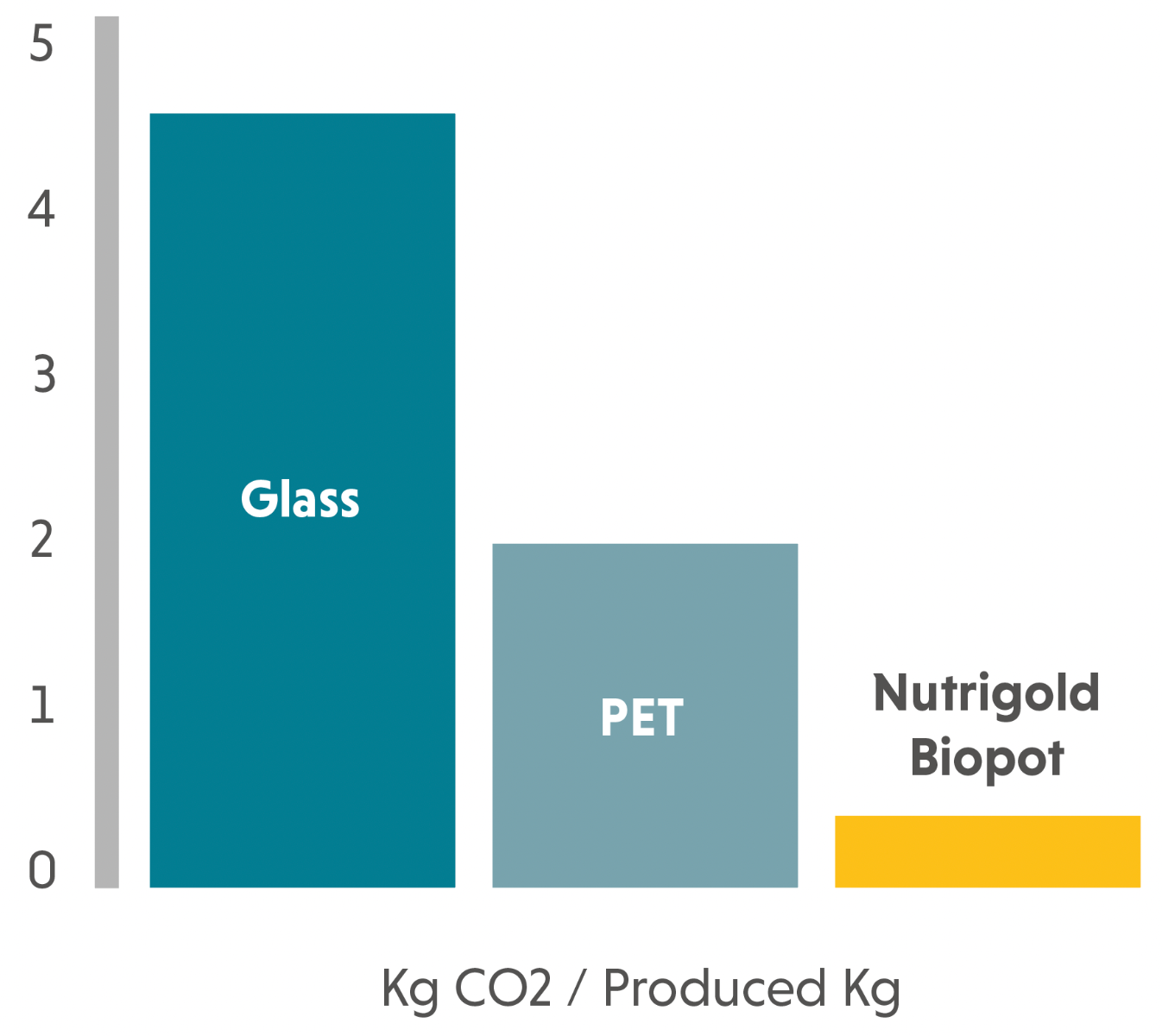
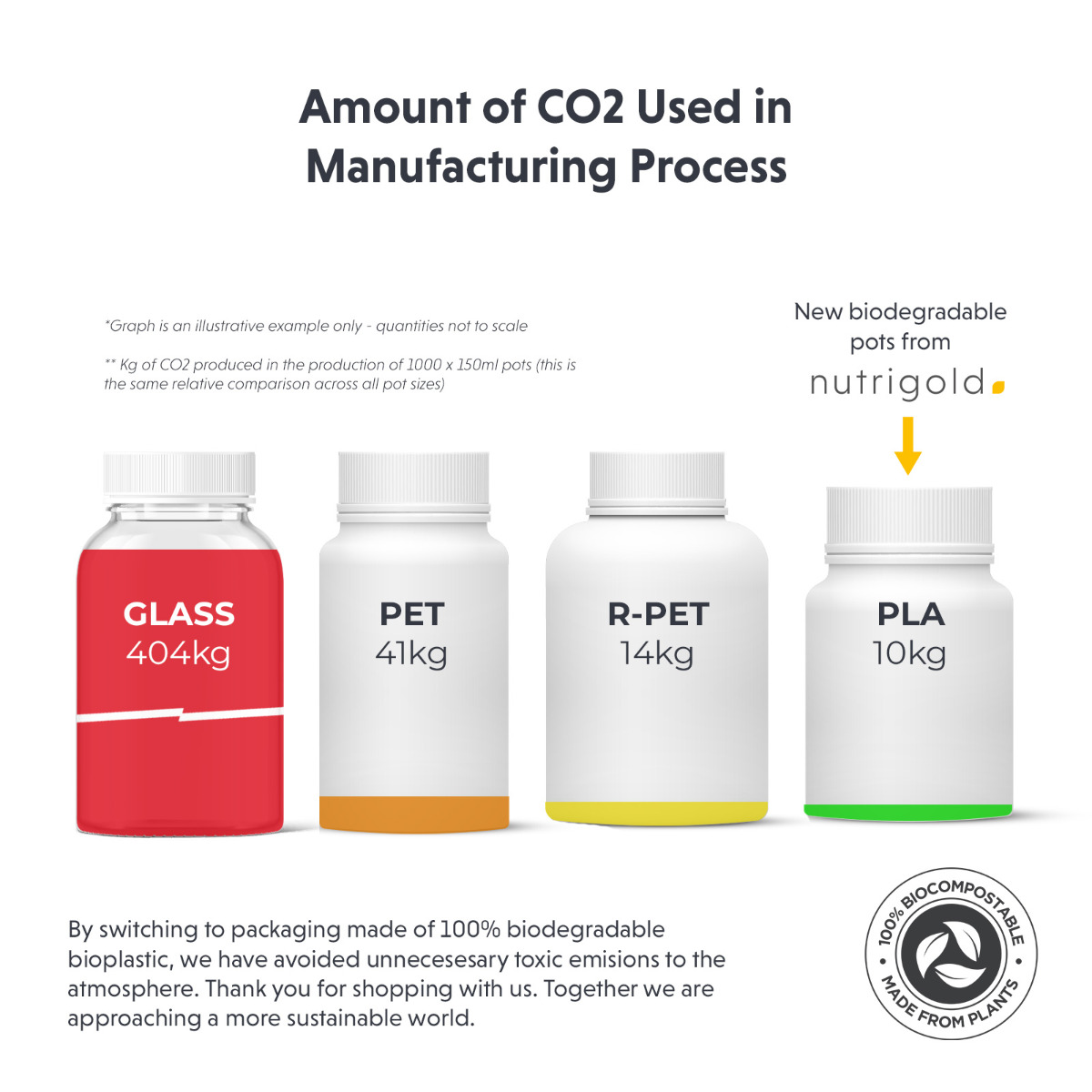
Is Nutrigold compostable packaging also recyclable?
Our biopot material is 100% recyclable. The recycling process is straightforward: washing, milling and reintroduction into the production line. No chemical additives are required. While the optimum bin is the compostable one, if mixed with other plastics into the plastics or packaging bins, it can be separated from others in the same way as conventional plastics are currently classified.
The life cycle of Nutrigold biopots
Composting & recycling Nutrigold biopots
Plastic waste is a global concern.
With sustainability high on everyone’s agenda we have embraced the advancing technology and have introduced Biodegradable pots.
This means that it can undergo decomposition under certain environmental conditions, turning it into water, biomass and carbon dioxide, taking it away from landfills, oceans and polluting the environment.
Where should you place Nutrigold compostable packaging after use?
Thanks to our biopots decomposition capabilites, you have a couple of options for disposal:
- Compost & food waste bins*
- Plastics recycling bins*
*Whilst we are proud to be ahead of the game in protecting the environment, currently local authorities have different requirements from region to region. so please check your local authority rules. We are hopeful that we will all be able to place these into our compost containers in the future.
Download Biopot Document